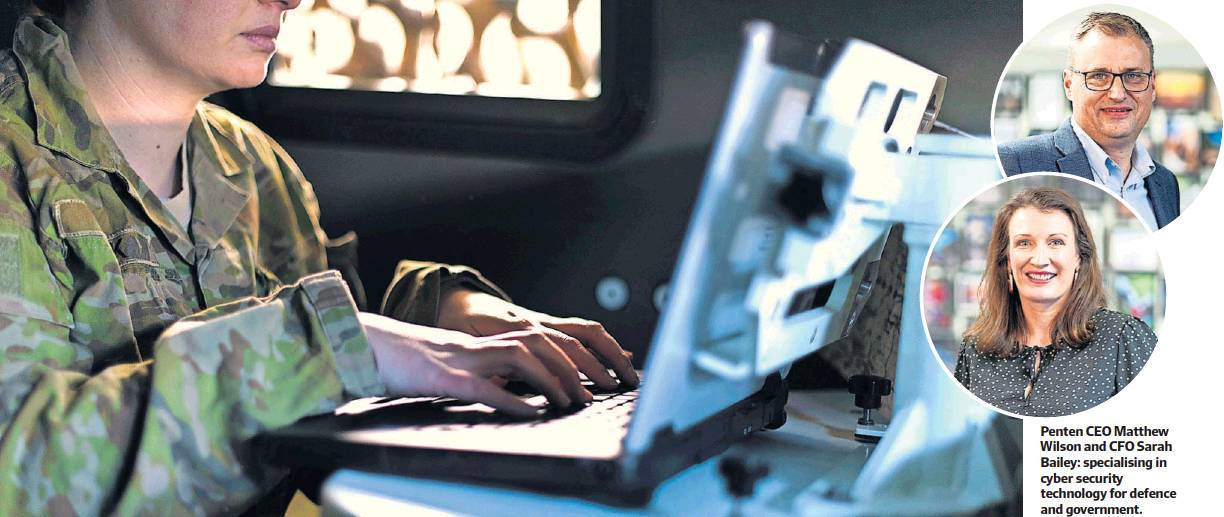Waging war against cyber adversaries
It’s a digital world and the changes that have flowed from the digitisation of economies and lifestyles have been immense: from restructuring industries to shifts in consumer behaviour that have changed the way we shop.
But as transformative as those changes have been, the digital economy was still a work in progress – until COVID-19.
The pandemic accelerated the digital transition, prompting Microsoft CEO Satya Nadella to observe in April: “We have seen two years’ worth of digital transformation in two months.”
The drivers of that rapid take up in digital technology include working and schooling from home and business investment in cloud infrastructure and cyber security.
The global cyber security market is worth $US173 billion, according to the Australian Cyber Security Growth Network, and is forecast to reach $US270 billion by 2026.
The pandemic-induced rush to digitisation is expected to intensify corporate interest in cyber security. Gartner’s annual global survey of chief information officers, released in October, found that 67 per cent surveyed in Australia and New Zealand planned to increase investment in cyber security.
Heightened interest in cyber security is not limited to businesses. Governments have been early adopters of digital information and service channels and they are moving to protect the vast troves of data they gather from citizens. They are also taking steps to improve cyber security in the community.
In August, the federal government launched the 2020 Cyber Security Strategy to “keep Australian families and businesses secure online, protect and strengthen the security and resilience of Australia’s critical infrastructure, and ensure law enforcement agencies have the powers and technical capabilities to detect, target, investigate and disrupt cybercrime”.
The defence sector has also been swept up by the digital revolution.
The Morrison government’s strategy commits investment of $1.4 billion over the next decade to enhance the cyber security capabilities of the Australian Signals Directorate and the federal government’s lead agency for cyber security, the Australian Cyber Security Centre.
This includes increased funding for defence innovation, industry grants, skilling and cyber training for the defence industry, which comprises 4000 businesses employing 30,000 people.
One of those businesses is Canberra-based Penten, which specialises in cyber security technology for defence and government.
Founded in 2014, Penten has grown from five to 97 employees and expects that to increase to 125 next year. Its revenue is expected to grow from $13.6 million in 2018-19 to $34 million in 2020-21.
Matthew Wilson, Penten CEO and one of the company’s five founders, says innovation has been key to that growth. Since 2014, Penten has invested $10 million in research and development.
“We actively look to solve the most difficult cyber security problems in government and defence. We look for the white space in the world and create a solution where there isn’t one,” Wilson says. “We’re not just about creating technology. We solve problems and we deliver outcomes for our customers.
“When we started Penten there were a lot of companies focusing on the cyber needs of enterprises but we saw that there was a range of problems that sat within government and defence.”
Helping to explain that insight, Wilson is a successful technology entrepreneur with 20 years’ experience developing and commercialising cyber technologies, while three of his co-founders are defence veterans.
Penten has two business units: Secure Mobility and Applied AI. Penten’s AltoCrypt secure mobility products enable mobile secure access to classified information for government. Applied AI uses machine learning to create realistic decoys to detect and track cyber adversaries. A third division, Tactical Communications Security, will shortly be unveiled.
Another key to Penten’s success – Penten was named Cyber Business of the Year in the 2019 Australian Defence Industry awards – is its people.
In the company’s most recent survey, 100 per cent of staff said they were proud to work at Penten, thus explaining a staff turnover of less than 2 per cent.
Employee benefits include six months parental leave, as well as unlimited sick, carer’s, reservist and domestic violence leave, and multicultural and study leave.
“We’ve worked hard to create and maintain a great culture,” says Penten chief financial officer Sarah Bailey. “Our culture is one of our biggest assets. It produces huge benefits for us. It’s a competitive advantage in terms of the talent we need to attract as we grow.”
Veterans comprise 28 per cent of Penten’s workforce. Bailey says that’s been “a fundamental element” of Penten’s success.
“Veterans understand the cyber challenges faced in defence and government,” she says.
“Veterans have vital domain knowledge; they understand the nuances of our customer base. Veterans who have worked in the cyber space are some of the best trained people in the world.”
Wilson is bullish about Penten’s future. “We’re on the cusp of significant growth,” he says.
Wilson and Bailey will steward Penten through this growth by focusing on innovation and culture – with the right capital partner. They have engaged PwC to support their capital market engagement process.
“We see great opportunities before us to build an organisation that makes a great contribution to Australia’s cyber security and to the Australian economy.”
